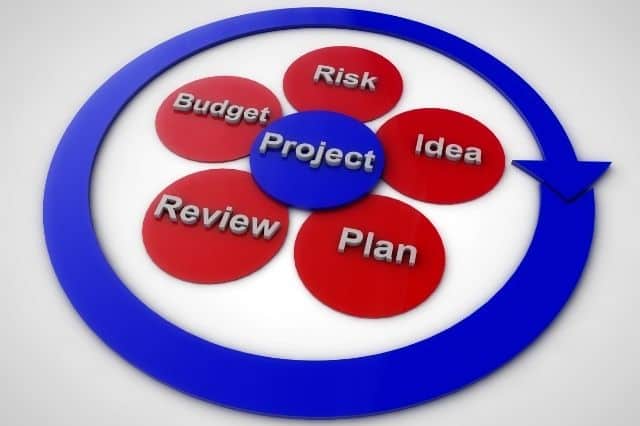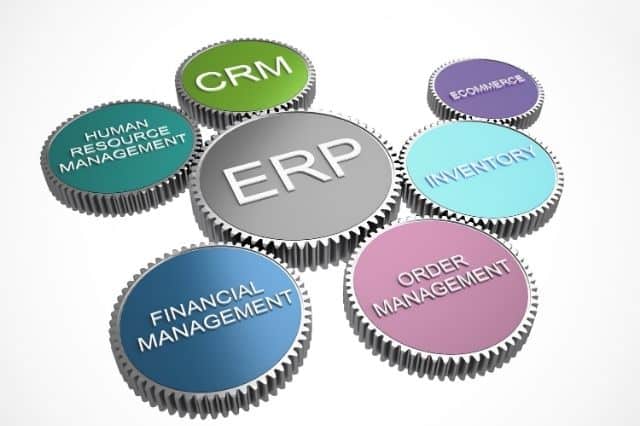Project Manager Job Description
A project manager plays a central role in ensuring the success of a project. They direct the project from initiation to closure. They are responsible for delivering the project on time, within the agreed budget and to the expected quality standards.
The project manager takes time to understand the vision of the project and motivates the project team to achieve it. The project manager maintains the teams’ focus on the project goals throughout the project. The other responsibilities of the project manager include:
Project Manager 15 Key Roles and Responsibilities
1. Project Planning
Planning is the first step towards ensuring project success. The project manager creates an overall project plan. The project manager understands the project goals and will outline all the project requirements from start to finish. They will also break things down further to:
- Identify all the project tasks to be completed
- Determine who needs to complete each task
- The timelines for completion of each task
The project manager creates the supplementary plans which support the main project plan. Each plan handles a different aspect of the project. Examples of the supplementary plans include:
- The stakeholder management plan
- The communication plan
- The cost management plan
- The scope management plan
- The procurement management plan
- The resource management plan
- The risk management plan.
The planning phase also involves understanding who is affected by the project and who affects it (stakeholders). The project manager identifies the stakeholders and plans on how to engage with them throughout the lifecycle of the project. The stakeholder management plan includes how and when to communicate the progress of the project, any changes in the project scope and any risks the project faces.
2. Activity and Resource Planning
Before a project commences, a project manager will collect the project requirements and define the scope. Scope definition is an essential step in determining the activities of the project and the resources required for successful execution and delivery. The project manager will:
- define the activities
- determine the order in which activities will be carried out
- estimate how long each activity will take
- identify the corresponding resources for each activity
Every project utilizes resources such as time, money, technology, people and materials. A project manager is responsible for determining the resources required in each stage of the project. One of those resources is people. Using the information from scope definition and the list of activities, the project manager will either engage and hire a team or assemble a team from the existing organizational resources. The project manager then proceeds to a plan for what each person on the team does and when they need to do it.
In some cases, the project manager may work with a specialized department to source and acquire resources. For example, the project manager can work with the procurement manager in their company to identify a supplier who can provide materials for the project.
Another resource which a project manager needs is money. Based on the scope of the project, the project manager determines the activities of the project. The project activities help to develop the cost estimates for the project. Depending on the level of activity details available, the project manager can determine high-level costs or a more detailed cost breakdown. Either way, the scope, and activities guide the cost estimation process.
The project team falls under the leadership of the project manager. The scope of the project informs a project manager of the specific knowledge and skills they need on the team. Once the human resource requirements are clear, the project manager can assess and determine the best-fit candidates for the project team.
Finally, the project manager will create different plans for managing each resource. There is a plan to manage resources, manage costs, manage the schedule, and manage the scope of the project.
3. Continuous Learning
A project operates within an internal environment (the company) and the external environment (the community and outside world). These environments may have an impact on a project. It is the responsibility of the project manager to continue learning and keep abreast of the relevant company and industry news. This way, the project manager is aware of any changes which may affect the successful completion of the project.
For example, the introduction of new legislation may need the project manager to look for new permits and licenses. Also, if the management within the company changed, the new leader may let the project continue with some changes or scrap the project altogether.
4. Communicating From the Start to The End of The Project
Communication takes up more than 80% of a project manager’s time. Project managers are responsible for ensuring the stakeholders, project team, and clients understand what the project seeks to achieve. A large part of communication happens between the project team and the project manager.
As the project progresses, the project manager lets everyone know the progress, the milestones achieved, and what they can expect in the next stage.
The best-laid plans often go awry. In such cases, it is the responsibility of the project manager to communicate the challenges they are experiencing and make proposals for course correction. A project results in a unique product, service or result. It means that there is a client who needs to be informed of a new product or service.
This is also the responsibility of the project manager, who may hire an external firm or send out communication through the company’s marketing department.
After completing the project, the project manager formally hands over the project. The project team meets to discuss and assess what worked, what could have gone better, and eventually document a lessons learned report.
5. Leading the Project Team
Leadership is another critical responsibility of a project manager. The project manager guides the project team and ensures that everyone performs in their role. The personal and professional development of the project team falls to the project manager.
As the project leader, the project manager will assess and report on whether suppliers are performing their jobs as per the contract. The work of reviewing contracts and allowing the release of payments falls to the project manager.
All projects should have a project team and steering committee. The steering committee is a smaller team that makes decisions about the project and helps with execution by offering expertise during the project.
For example, a typical steering committee would include the project sponsor (the financier of the project), marketing, IT, operations, and the project team. The project manager convenes steering committee meetings and guides discussions towards consensus for the good of the project.
Influencing is a vital skill in leadership. During project execution, a project manager deals with internal and external stakeholders, suppliers, and the project team. A project manager influences the outcomes by building trust with the teams, gathering and applying relevant information to reach agreements.
6. Motivating the Project Team
A project manager is in a unique position. They are responsible for keeping the project and the project team on task. Before the project manager can motivate the project team, they need to understand each team member.
They need to identify who is driven by external factors such as the project environment and who is motivated by internal factors such as a personal sense of achievement. This understanding of motivation helps the project manager decide what they can do for the team to keep them focused on the activities of the project.
7. Controlling the Project Schedule (Time Management)
There are three things that mark the success of a project: whether it was completed on time, according to budget and the expected quality standards. Time management is, therefore, an essential part of a project manager’s job.
The project manager needs to create a realistic project schedule that ensures all the project activities are carried out as expected. Where necessary, the project manager will update the project schedule to reflect any changes or delays in the project. Communicating the project schedule to the team will help ensure that deadlines are met, and any deviations noted and addressed quickly.
8. Cost Estimation and Budgeting
It is impossible to run a project without money. A project manager is responsible for estimating project costs. One way is to use the costs of a similar past project. Another way is to use expert judgment based on past experience with projects of the same nature.
The more accurate methods of estimating costs involve using a detailed breakdown of project activities to determine the cost of each component.
After estimating the costs, the project manager will create a budget for approval by the client or project sponsor. As the project progresses, the project manager needs to keep an eye on the spending to avoid cost overruns.
9. Controlling Quality to Ensure Client Satisfaction
Quality is one of the measures of project success. During the project, the project manager will put measures in place to evaluate the project deliverables to ensure they meet the stakeholder requirements.
Further, the project manager will share the progress of the project with them, obtain feedback and continue to involve them in the process as much as possible. By controlling the quality of the project and involving the client, the project manager increases the chances of acceptance of the final project deliverables. It also ensures there are no unexpected requests from the client in the middle of the project.
10. Risk and Issue Management
A good project manager can identify and plan for risks and issues. Using a RAID log, the project manager captures Risks, Assumptions, Issues, and Dependencies. To break it down:
- A risk is a potential event that could have an adverse effect on the project.
- An assumption is something you believe to be true about the project.
- An issue is something that could go wrong in the project and cause delays.
- A dependency is when one activity/input relies on another activity/output.
After capturing this information, the project manager will know whether to avoid, transfer, mitigate or accept the risk. They will also plan accordingly for the risks and issues.
11. Executing
One way you can define a good project manager is one who gets things done. Project managers select and plan for the resources. They ensure that all the plans from the planning stage are implemented.
During execution, the project manager is responsible for any testing or piloting of new products or services. They are also responsible for ensuring the right quality standards are used.
12. Monitoring and Evaluating
The project manager keeps a keen eye on the progress of a project to ensure everything is going according to plan. A project manager can initiate a change request to correct defects. A defect is a deliverable that does not conform to the expected standards.
The project manager also observes that quality is maintained during the project. They work with the project team to prevent errors and inspect the final product before it is delivered to the client.
13. Project Reporting and Documentation
Using project reports, the project manager communicates the progress and performance of the project to the key stakeholders. The project manager can use the traffic-light system of red, amber, and green to report on how the project is fairing.
At the end of the project, the project manager compiles a final report which includes a history of the project, what it set to achieve, the lessons learned, and the final deliverables. The final report is signed off and archived for future reference by another project team.
14. Knowledge Management
Knowledge Management is yet another responsibility of a project manager. Knowledge management occurs during all the stages of a project. It is about more than creating and filing project documents. Instead, the project manager must find a way to use what is already documented (explicit knowledge) and the knowledge, skills, and expertise of the project team (tacit knowledge).
Tacit knowledge exists in the minds of the project team and other stakeholders. A good project manager creates an environment of trust which allows everyone to share their stories, contribute to the project and have this information documented for posterity.
15. Closes the Project
Upon completion of the project, the project manager has a responsibility to conduct a formal project handover to the owner. They will verify that all the deliverables are available and meet the quality standards. The project manager brings together the project team for a review of how the project unfolded.
Under the leadership of the project manager, the project team will discuss and document the lessons learned. The lessons learned aim to guide project managers running similar projects in the future.
A project manager has many responsibilities, and while project success depends on excellent project management skills, they must inspire the project team to action.








